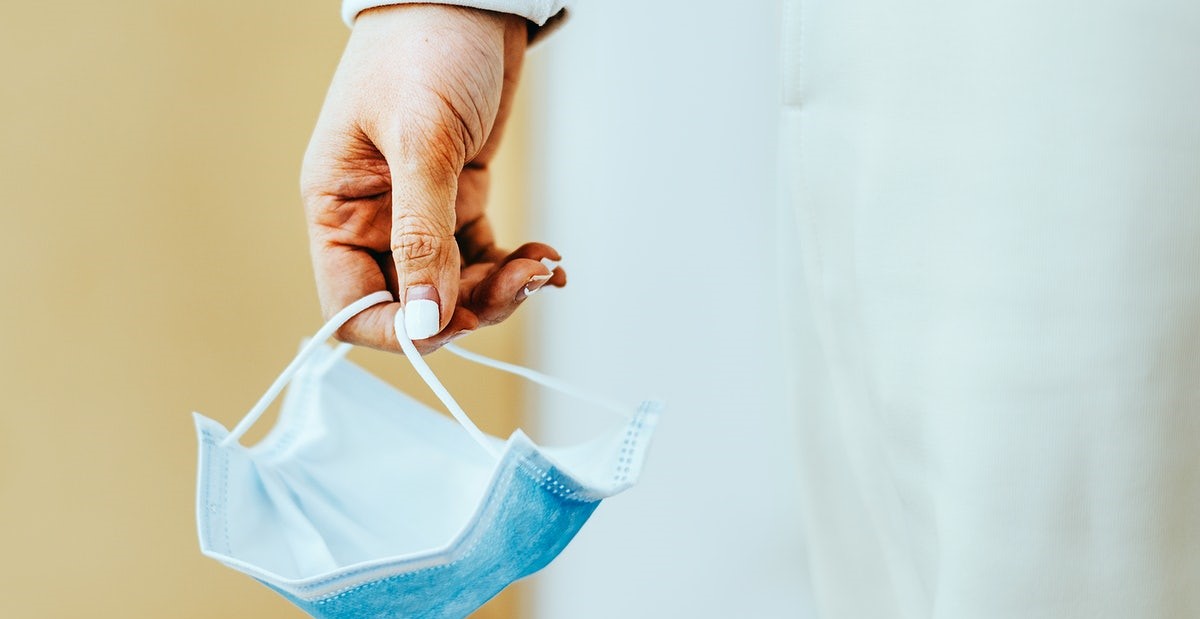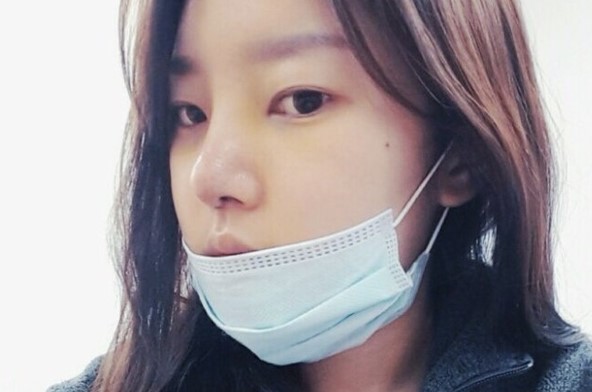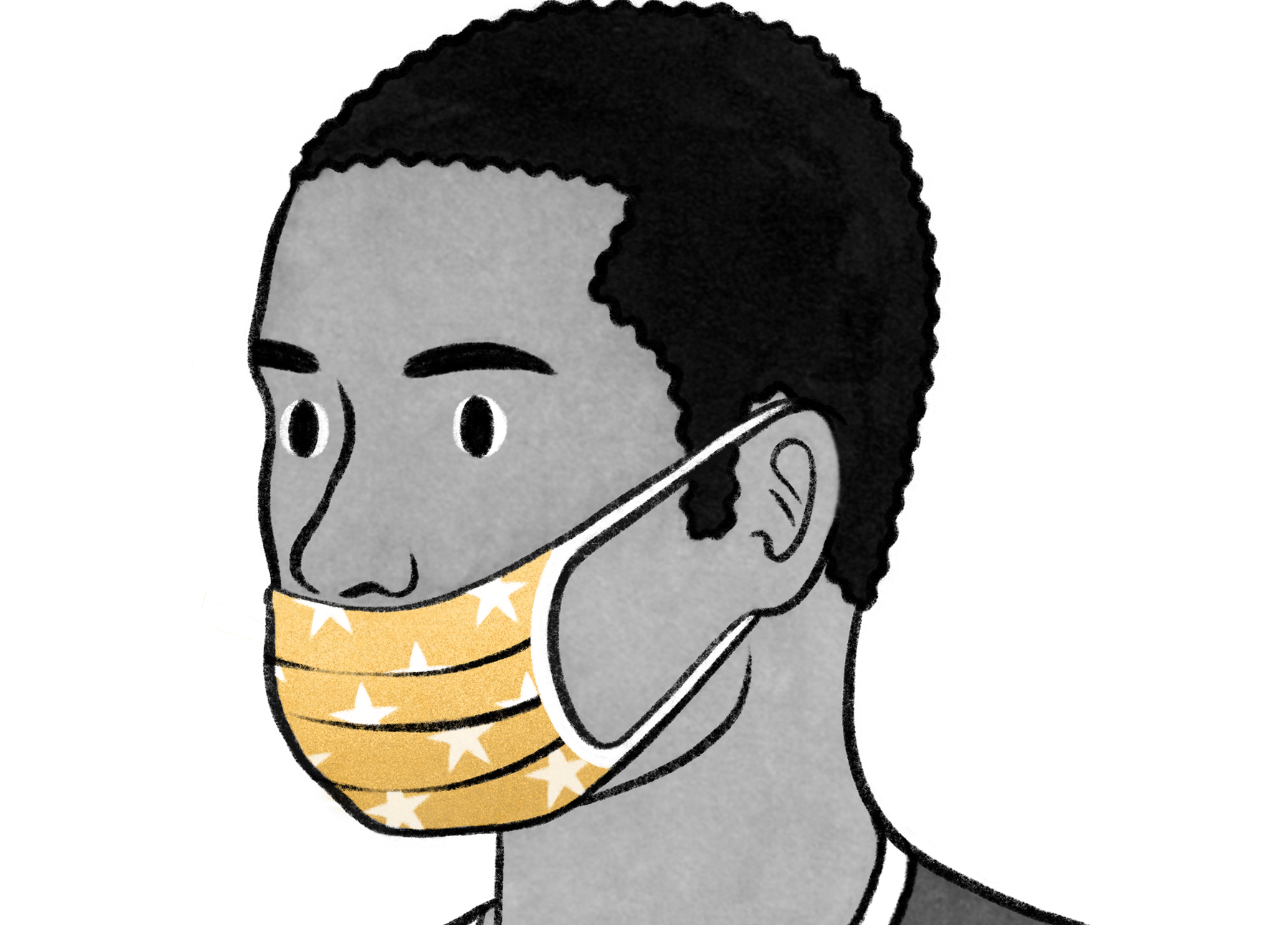The first time I ever wore a face mask to get around my regular activities was in 2012. At the time, I was awaiting my Basic Education Certificate Examination(BECE) results. I got this job to be a Welders’ Helper (more like a labourer) with a private engineering company. We worked in a docked sea vessel called Jascon 2 at the Dry Dock in the Tema Main Harbour. As part of my job, I was to assist Welders and Metal Fabricators get whatever they needed to do the job. Climbing in and out of ship tanks was the main routine. And because there was a lot of dust filled with various chemicals in the atmosphere, it was mandatory for every worker on the Jascon 2 to wear protective gear, paramount among which was the face mask. That was when I learned to get used to a mask covering my mouth and nose while working.
I must say, though, it was very difficult for me to get used to wearing face masks. I couldn’t control my breath at the beginning, I found it hard to sneeze, I became very hot and sweaty more quickly than usual. If I had my way then, I wouldn’t wear it but I knew it was paramount to my own health and safety. So I wore it nonetheless.
Now, since the president, Nana Akuffo Addo lifted the partial lockdown, which was necessitated by the Corona Virus Pandemic (COVID-19), a few weeks back, face masks have become the norm. The president himself has admonished and some Municipal and District Chief Executives (DCEs) have made it compulsory that everyone in Ghana if we have to go out of our homes, should wear face masks.
The World Health Organisation (WHO), the National Health Service (NHS) of China, the John Hopkins University (who have become the world’s data centre for the COVID-19) among many other health experts have provided enough scientific evidence to prove that wearing face masks protect the wearer and the people around him or her from particles of saliva which fly out of the mouth during conversations or when a person coughs or sneezes. In essence, the face masks slow the spread of the disease. That is why face masks are a key element in the Personal Protective Equipment (PPE) for frontline health workers.
I don’t know about you but I am all for a move that has the propensity of slowing down or even preventing the spread of a disease that has infected more than 3 million and killed close to a million people worldwide. If to wear a face mask is the only way to save myself from a disease that has brought the world to its knees, I would do it more than perfectly.
Unfortunately, that is not the case with a lot of Ghanaians. Going around town, I see a lot of Ghanaians finding it difficult to go about their daily activities with a face mask on. I meet corporate workers, traders, police and military officers, drivers and their conductors, journalists and pretty much everyday Ghanaians who don’t have face masks. And for those who have it, they wear it in a manner that is as good as not having it in the first place.
I have observed three categories of people in regards to how Ghanaians wear the face mask. These I call, ‘The Holders’, ‘The Mouthers’, and ‘The Chinners’. All these have interesting ways of handling the face masks that if not addressed can multiply all national and private efforts at truncating the spread of COVID19 by zero.
‘The Holders’ have the masks for the sake of having it. They buy some pretty cool ones and either hold them in their hands, hang them on their backpacks or just fold them neatly into their pockets. Whatever they do, Holders make sure to showcase that their face masks without actually wearing it. This group includes mostly security officers like the police and the military.

‘The Chinners‘; they actually do more than just hold the mask, they wear them. But they do just half the proper thing; they keep the mask hanging around their chin. Chinners hang the masks on one ear and let it swing like a pendulum or they hang on by both ears and leave it strapped on the chin like a heavy-weight boxing belt; sandwiched between the mouth and the neck. Most people in this category are the corporate workers like bank tellers and other white-collar workers as well as traders in the market and at shops. They look like they’re doing the right thing but they certainly aren’t.

Then comes ‘The Mouthers‘. Your guess is as good mine. They indeed wear the mask but only enough to cover their mouths, leaving their nose exposed. Now that’s equally as dangerous as not even wearing the mask at all because when such a person sneezes, they can spread droplets. They can also breathe in droplets from others who don’t wear the mask around them.

So, what on Earth can make a person to play gimmicks with a protective gear that has the highest and most assuring potential to save his or her life from a deadly virus like Corona. My guess, they don’t very well understand that fact; the fact that by pretending to wear the mask, they are endangering themselves as well as those around them. These people don’t understand that wearing a face mask; not a chin mask, not a mouth mask, not a hand mask, wearing a face mask, is a sacrifice we have to make in order to win over this pandemic. People do not get it that the best contribution we can make to national and international efforts to fight COVID-19 is to protect ourselves and protect those we interact with.
I’ve watched a documentary on how Chinese scientists figured out that when we converse with others or sneeze, there are unseen droplets of saliva that remain in the atmosphere for an as long as 15 minutes. These droplets fly from the person talking to the one listening. If any of those involved in a conversation, like what happens in public transport (trotro or taxi), between police and citizens and between sellers and customers, perchance has the virus but is asymptomatic, he or she can spread the disease to others and thereby increase the spread of the virus.
I propose that the government, through an alliance with the media and the National Commission for Civic Education (NCCE) should increase awareness and education on the most appropriate ways to wear the face mask. They can engage the Information Services Department (ISD) to produce audio-visual content for radio and TV in various Ghanaian languages. That’ll carry the message home more.
The government should also use the Ghana Standards Authority (GSA) to prescribe standardized quality of locally-made face masks. I’m guessing not all the fabrics used allow enough ventilation. And if breathing is difficult, people will not wear it.
I also suggest to us Ghanaians that we wear the mask no matter the discomfort they come with. Wearing the face mask is the only way we can fight and win this war against the invisible enemy, Novel Corona Virus Disease 2019.
Efo Korku Mawutor, Student, GIJ.









